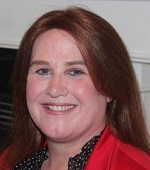A nonprofit plans to address drug shortages in the U.S. by making its own products under a model that seeks to break a chain of manufacturing quality and price concerns that also have the sharp attention of regulators and policymakers.
Massachusetts-based Drew Quality Group is focusing on drugs that are in short supply--or are still in use but not manufactured--published on the U.S. FDA website. The company is planning on a Toyota-style manufacturing process to plow earnings back into quality--all done in a tight-geographical circle in the United States.
Deborah Drew, who serves as director, chairman of the board, president, and CEO, spoke to FiercePharmaAsia by Skype and outlined why the group thinks the current far-flung model of sourcing and manufacture is ready for a dose of charity.
 |
| Deborah Drew |
"For a long time companies have not invested in education, employees and investigations (of process)," Drew said. "That shows in quality. They look to get from point A to C and skip B. But as a tax-exempt nonprofit we do not face that pressure to cut corners. We would have positive control and monitor every step in the manufacturing process."
To be sure, manufacturers of low-cost generics in India and China might not see a major threat to efforts at undercutting their access to the main U.S. market from a nonprofit firm. But it is more than clear in India and China that the FDA is focused on supply-chain sanctity in manufacturing. In the long run, that should mean higher costs even for those manufacturers, Drew said.
"Our objective is to produce the highest quality," Drew said, adding that such a strategy may be of comfort to payers and regulators over lower costs.
The website mission statement makes that more explicit as "transforming generic drug production through a strong emphasis on GMP compliance, and establishing transparent and constructive relationships with regulatory agencies … to ease the quality and supply issues facing the biopharmaceutical market today, by being a quality-driven additive manufacturing and job creating force."
The long-term plan is to find a distressed community and establish a manufacturing operation that works with suppliers within a 50-mile radius, creating an ecosystem akin to the Toyota manufacturing model--though presumably the distressed part includes Motown.
"We are now a virtual operation that will originally work with a manufacturer and then move into a model that is modular and has disposable technology for batches," Drew said, noting funding can come from donations, or federal government allowed social impact bonds and rebate models that kick in for companies in key industries like pharmaceuticals that save the government money.
Manufacturing decisions would be based on the need for specific drugs at the time, with a 24-month window started in April to ramp up on three target areas: oncology, antibiotics and HIV/AIDS. Drew did not name specific candidates on the FDA shortage list.
Passed in 2012, the Food and Drug Administration Safety and Innovation Act aids the process of building a manufacturing operation, Drew noted, and official White House support for efforts at lower costs for drugs certainly helps.
Of course, the outpouring of rage that greeted Turing Pharmaceuticals last month when CEO Martin Shkreli decided to hike the price on an older med by 5000% probably underscores some of Drew's points as well.
- here's the Drew Quality Group website
- and a FDA Drug Shortages FAQ page and infographic